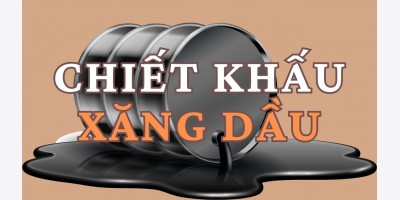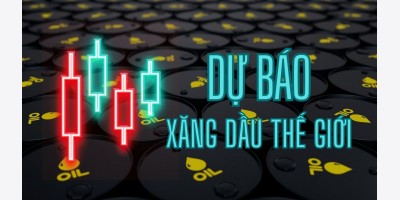Dầu thô phiên châu Á sáng nay tăng nhẹ
Sau khi vá»t lên mức cao 98 USD/thùng kể từ tháng 10/2008 trong phiên châu Á sáng qua, giá dầu thô Ä‘ã bắt đầu hạ nhiệt dần trong phiên Mỹ cùng ngày, nhÆ°ng sáng nay giá bắt đầu nhích dần trở lại do bạo lá»±c ngày má»™t căng thẳng ở Libya, càng gia tăng thêm những quan ngại vá» nguồn cung sẽ vị gián Ä‘oạn, trong khi tình hình sản xuất dầu thô ở các quốc gia khác nhÆ° ở Trung Äông và Bắc Phi cÅ©ng Ä‘ang nằm trong nguy cÆ¡ bị giảm do tình hình bất ổn xã há»™i cÅ©ng Ä‘ang lan rá»™ng ở các khu vá»±c này.
Mặc dù giảm vào cuối phiên, nhÆ°ng kết thúc ngày giao dịch hôm qua giá dầu thô vẫn tăng 6,4% so vá»›i thá»i Ä‘iểm cuối phiên ngày 18/02. Dầu thô Brent thì tăng ở mức cao nhất kể từ tháng 09/2008 sau khi Tổng thống Libya - Muammar Qaddafi tuyên bố sẽ quyết chiến vá»›i lá»±c lượng phiến quân đến hÆ¡i thở cuối cùng.
Bill O’Grady, chiến lược gia thị trÆ°á»ng của Confluence Investment Management ở St. Louis nói rằng thế giá»›i có thể sẽ thiếu nguồn cung dầu thô từ Libya. Chúng tôi không biết liệu những chuyện này sẽ Ä‘i đến Ä‘âu.
Giá dầu thô WTI giao kỳ hạn tháng 04 trong phiên châu Á sáng nay vào lúc 07h20 (giá» Việt Nam) Ä‘ã tăng 66 cent, tÆ°Æ¡ng Ä‘Æ°Æ¡ng 96,08 USD/thùng. Hợp đồng giao kỳ hạn tháng 03 cÅ©ng Ä‘ã mãn hạn ngày hôm qua tại mức 93,57 USD/thùng, tăng 7,37 USD so vá»›i cuối tuần qua.
Trong khi giá dầu thô Brent giao kỳ hạn tháng 04 tại London cÅ©ng tăng 4 cent lên mức 105,78 USD/thùng trong phiên giao dịch hôm qua, mức cao nhất kể từ ngày 22/09/2008
Tuy nhiên ông Ali al-Naimi Bá»™ trưởng Bá»™ dầu mỠẢ Ráºp Saudi khẳng định sẽ không có chuyện thiếu hụt nguồn cung dầu trên thế giá»›i, nếu thiếu nguồn cung ở Ä‘âu thì tổ chức OPEC sẽ sẵn sàng tăng sản lượng lên để bù vào sá»± thiếu hụt ở Ä‘ó.
Theo dá»± báo của Goldman Sachs Group Inc, giá dầu thô Brent khả năng sẽ tăng ká»· lục nếu tình trạng ở Libya vẫn tiếp diá»…n và lan rá»™ng sang các nÆ°á»›c sản xuất dầu ở Trung Äông, đặc biệt là sang Ả Ráºp saudi, vốn là nÆ°á»›c sản xuất dầu thô lá»›n nhất thế giá»›i vá»›i công suất 4 triệu thùng/ngày. Hồi tháng 07/2008, giá dầu thô Brent thiết láºp ká»· lục ở mức 147,50 USD/thùng.
Crude Oil Gains a Fifth Day on Concern Libya Unrest May Spread
Share Business ExchangeTwitterFacebook| Email | Print | A A A
By Margot Habiby and Ben Sharples
Feb. 23 (Bloomberg) -- Oil rose for a fifth day in New York as intensifying violence in Libya stoked concerns that supplies will be disrupted should the turmoil spread to other crude- producing countries in the Middle East and North Africa.
Futures in New York yesterday surged 6.4 percent from the Feb. 18 settlement, while London-traded Brent rose to the highest since September 2008, after Libyan leader Muammar Qaddafi vowed to fight a growing rebellion until his “last drop of blood” and urged his supporters to take to the streets.
“The world could deal with the loss of Libyan barrels, but the worry is that it won’t stop at Libya,” said Bill O’Grady, chief market strategist at Confluence Investment Management in St. Louis. “We don’t know where this is going to end.”
Crude for April delivery rose as much as 66 cents, or 0.7 percent, to $96.08 a barrel in electronic trading on the New York Mercantile Exchange, and was at $96.05 at 10:02 a.m. Sydney time. Yesterday, it increased $5.71 to $95.42. The March contract, which expired at the close of floor trading yesterday, surged $7.37, or 8.6 percent, to $93.57. Prices are 22 percent higher than a year ago.
Brent oil for April settlement on the London-based ICE Futures Europe exchange gained 4 cents to $105.78 a barrel yesterday, the highest settlement since Sept. 22, 2008.
Libya declared force majeure on all oil exports, Reuters reported, citing people it didn’t identify. Force majeure allows producers to miss contractual obligations because of circumstances beyond their control.
‘No Shortage’
Saudi Arabian Oil Minister Ali al-Naimi said yesterday that there is “absolutely no shortage of supply” and that the Organization of Petroleum Exporting Countries will be ready to increase output if one develops.
Saudi Arabia, the largest oil exporter and the biggest producer in OPEC, has 4 million barrels a day of spare capacity, al-Naimi said at a press conference at the ministerial meeting of the International Energy Forum in Riyadh. All the world’s producers, including Saudi Arabia, could pump an additional 6 million barrels, he said.
Countries in North Africa and the Middle East were responsible for 36 percent of global oil output and held 61 percent of proved reserves in 2009, according to BP Plc, which publishes its Statistical Review of World Energy each June.
Libya has become the focal point of protests ignited by the ouster of Tunisia’s president and energized by the fall of Egypt’s President Hosni Mubarak.
World Economy
The world economy can withstand the surge in oil prices sparked by the unrest in the Middle East for a short time, John Lipsky, the No. 2 official at the International Monetary Fund, said on Bloomberg Television’s “Inside Track” yesterday.
The Paris-based International Energy Agency said in a statement yesterday on its website that “the IEA stands ready, as always, to make oil available to the market in the event of a major supply disruption if alternative supplies cannot be made available via normal market mechanisms.”
Brent may surge to a record if the unrest in Libya continues and spreads to other Middle Eastern oil producers such as Saudi Arabia, according to Goldman Sachs Group Inc. Brent touched a record $147.50 a barrel in July 2008.
Libya pumped 1.59 million barrels a day of oil in January, according to data compiled by Bloomberg News, making it the eighth-largest producer among those with quotas in OPEC. The group pumps 40 percent of the world’s oil.








